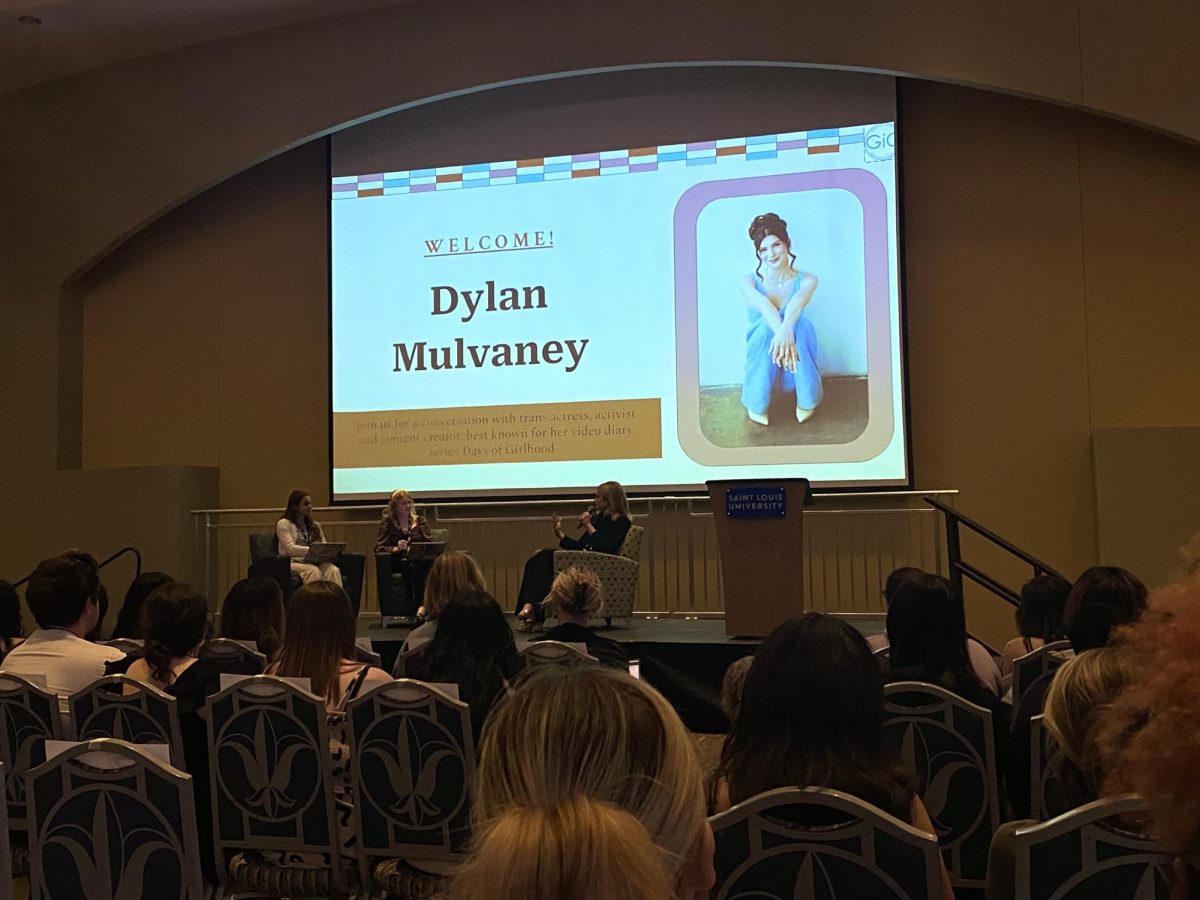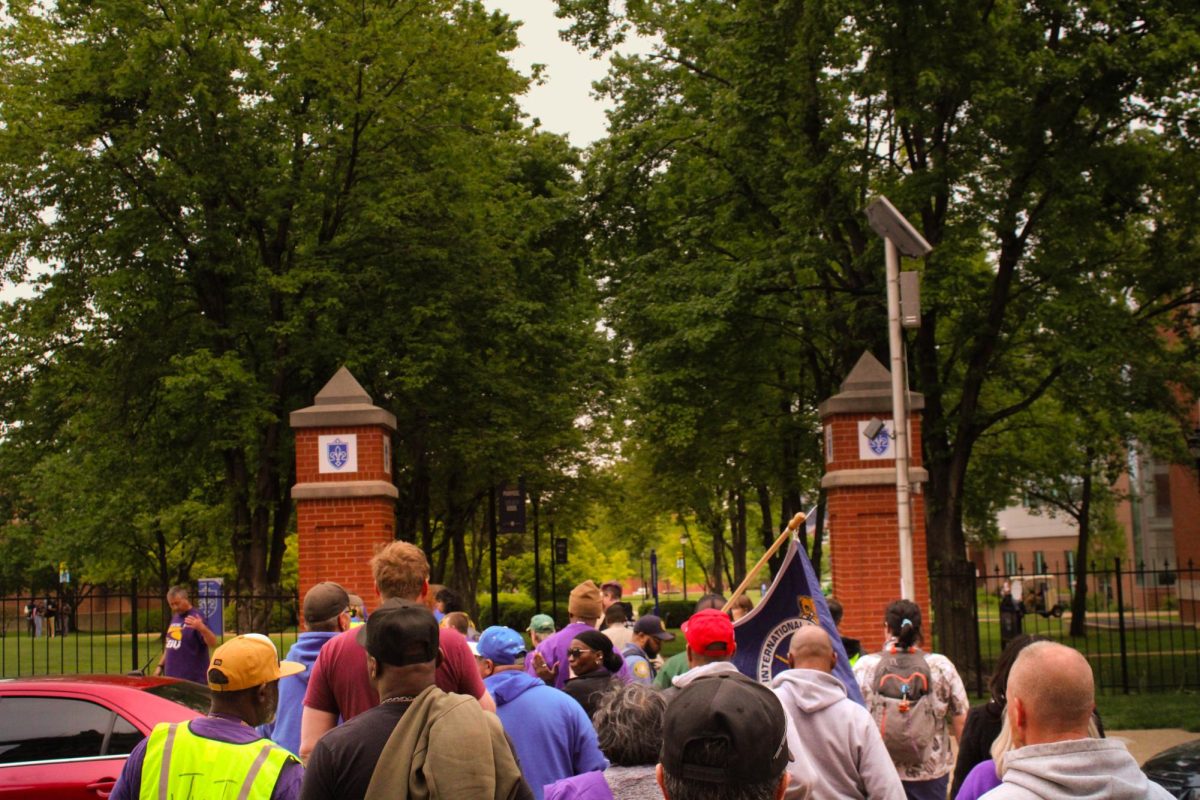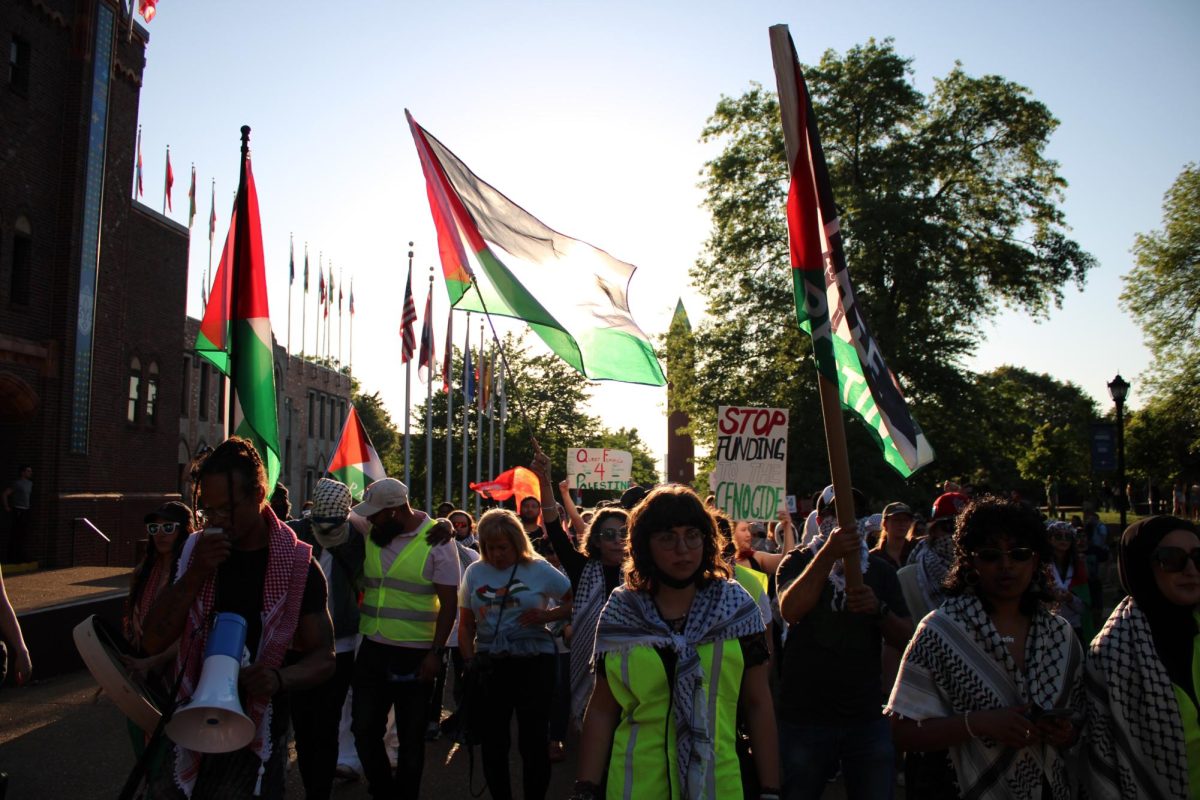Representatives from Iraq, the United Nations and the United States converged in St. Francis Xavier College Church ballroom on Monday evening to debate opposing viewpoints on the continuing sanctions against Iraq from the Gulf War.
The debate marked the conclusion of the third Mev Puleo Conference, sponsored by Peter and Evelyn Puleo, in remembrance of their daughter. Mev Puleo, a graduate of Saint Louis University, documented the lives of the poor throughout the world through photojournalism. She was the wife of Dr. Mark Chmiel, professor of theology at SLU. Mev Puleo died of a brain tumor in 1996 at age 32.
The conference consisted of a series of presentations that illustrated the cultural history of the Iraqi people and the effects of sanctions against Iraq. Speakers included Fr. G. Simon Harak, S.J., and Kathy Kelly, active members of anti-sanctions group Voices in the Wilderness; Dr. Laurie Mylroie, representative for U.S./U.N. viewpoints and expert on terrorism; Dr. William Foley, S.J.; His Excellency Mgr Mar Jibrail Kassab, Chaldean Catholic Archbishop of Basra, Iraq; Hans-C. Graf Sponeck, former U.N. Humanitarian Coordinator for Iraq; and Dr. Jack Renard, Jr., professor of theology at SLU.
Fr. James Blumeyer welcomed the audience of nearly 100 people to the debate. After a prayer led by Archbishop Kassab, University President Lawrence Biondi, S.J., introduced the two speakers, Dr. Mylroie for the pro-sanctions viewpoint, and Mr. Sponeck for the removal of Iraqi sanctions.
“The Gulf War is not over for the United States. We bomb Iraq on a regular basis,” Mylroie said.
According to Mylroie, the war has continued for the past 10 years for Iraq as well, citing two primary reasons: acts of terrorism against the United States and attempts to stockpile weapons of mass destruction.
The World Trade Center bombing in February 1993 is an example of such terrorist acts, Mylroie said.
“The U.N. holds that the bombing is Saddam’s unfinished business of the Gulf War,” she said.
Mylroie said that states rather than independent groups conduct such terrorist acts, contrary to traditional terrorism. She terms such tactics “asymmetric warfare,” meaning that each side confronts the other on different battlefields. In this case, the United States and the United Nations attack commercially, by sanctions, while Iraq attacks by terrorism and, potentially, weapons of mass destruction.
The inability of Saddam Hussein to comply with U.N. Security Council Resolutions, such as disarmament of weapons of mass destruction, results in the continued economic sanctions, said Mylroie. She cited the testimony of Khidhir Hamza, Iraqi defector and ex-head of Iraq’s nuclear weapon design program, as evidence of Iraq’s refusal to comply.
“A large dangerous unconventional weapons capability had survived the war,” Mylroie said. “All Iraq lacks now to be able to make a nuclear bomb is the fissionable material.”
She presented two possible routes for international relations with Iraq, both involving the maintenance of sanctions. One recommendation proposes arming the Iraqi population against Hussein. The other proposes rigorous and continuous U.N. weapons inspections.
To begin his counter-argument, Sponeck said, “I do and will exploit the fact that I lived 17 months in Baghdad because I felt that I was living under a faulty policy.”
Sponeck, in addition to being the Humanitarian Coordinator for Iraq, held a position at the troops as a liberation army . directed the Oil-for-Food Humanitarian program.
The Oil-for-Food program directs revenue from Iraq’s oil industry into a United Nations escrow account. All purchases made for the country of Iraq with this money must be approved by a committee, and the vendors receive payment through the escrow account.
Mylroie championed the program and said that it would be the model on which the United Nations would base its future humanitarian efforts.
Sponeck said that in the four years of the Oil-for-Food program, 17 months of which he was in charge, $8.8 billion was distributed to 22 million people, approximately $100 per person per year.
“What my colleagues and I stressed in Baghdad is that life is not about material needs. A person who is hungry has little time for the mind,” said Sponeck.
Describing Iraq as “a society in refrigeration,” Sponeck said that population and domestic violence have increased, while no new housing has been created. He said that 90 percent of untreated sewage flows into the Tigris and Euphrates Rivers. He said that since 1991, the number of deaths of children under 5 has increased from 56 to 131 children per thousand yearly.
“We must end this purely punitive approach and begin to have dialogue. We have become very dishonest,” said Sponeck.
Following the two presentations, Mylroie and Sponeck were given time to question each other’s arguments.
Mylroie, allowed to speak first, questioned Sponeck’s dismissal of the weapons that Iraq retains, according to U.N. reports.
“Should we have a dialogue with Hitler?” asked Mylroie.
Sponeck said that no evidence permissible in a court of law proved anything of “perceived terrorists” and possession of weapons of mass destruction. Mylroie disagreed.
The debate was then opened to questions from the audience. All questions were directed at Dr. Mylroie.
To close the debate, Archbishop Kassab spoke to the audience in Aramaic, with a translator. Kassab compared the situation in Iraq to a house on fire, full of children, parents and grandparents, outside of which the firefighters stand.
“`Why is the house burning? Who is the one who started the fire?’ That is how the firemen continued to argue amongst themselves. Do not spend your time arguing to do this or to do that. In the time that we have spent in this meeting, four children have died,” Kassab said.
“Emotions have been cultivated over the past week against Dr. Mylroie,” said freshman Michael McGrath in response to the debate. “It hindered the intellectual value of this debate. Some people were disrespectful and unprofessional. It was an embarrassment to our University.”
“There is a distinction between Saddam and Iraq,” said Zeiad Al-Hachami, P.E., an Iraqi-American for 10 years. “The people will welcome U.S. troops as a liberation army . The Holocaust was preventable. The situation is the same with Iraq.”






